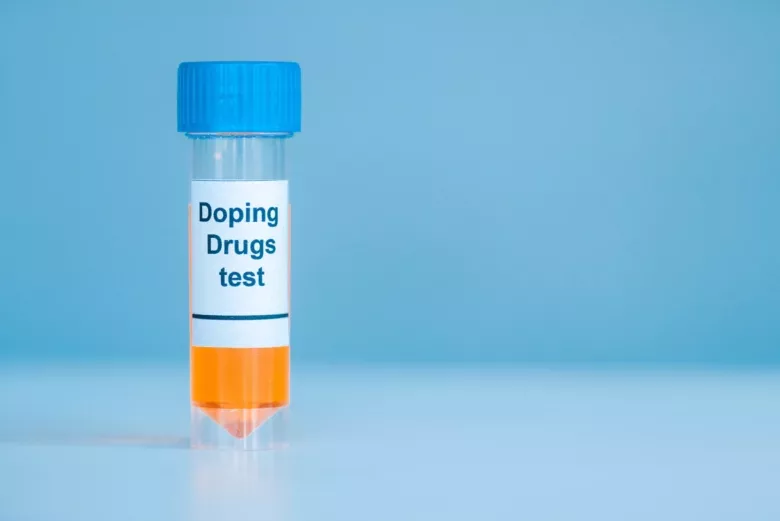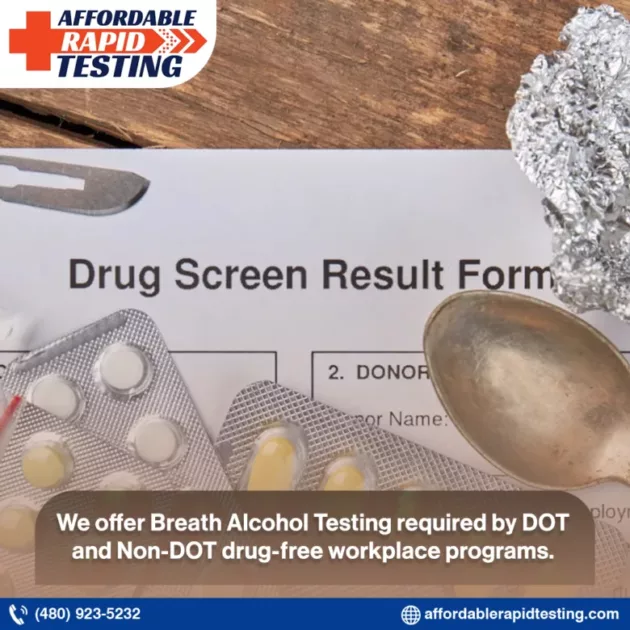Using drugs has evolved into a passionate ritual among teens, which is one of the reasons why your teenage kid could be lying to your face. Family plays a crucial role in a child’s growth and development. Oftentimes, the family has no clue their adolescent kid has been using substances and ruining their life.
Teens are experts in the game of manipulating their parents into believing what they are told. This leads to years of concealing drug abuse from their parents and making their conditions worse. Long-term drug abuse results in adolescent substance use disorder. Parents need to look out for warning signs in teens and communicate with them properly to regain trust and create a stronger parent-child bond.
Underlying Causes for Teen Drug Abuse
When parents first get to know their teenage kid is lying about substance use, their astonishment turns to anger and accusation. They naturally feel betrayed and disappointed. But parents should dig out the underlying issues behind their kid’s drug abuse to secure and offer them a positive journey towards healing. Here is a concise list of common causes behind a teen’s substance use:
- Poor relation with parents: As a teen, an individual goes through hormonal ups and downs that cause behavioral anomalies. This may prompt a weakened relationship with their guardians which often has a stressful impact on the adolescent.
- Imitating friends or families: It is not unusual for a teen to come under peer pressure or become a bully that provokes them to use illegal substances. A pre-teen or a young adult gets the urge to feel included in a big social group. This sometimes causes them to form illicit habits. Also, some teens may imitate a family member who is a heavy addict.
- Post-traumatic Reaction: There may occur some incident in a teen’s life that may scar them mentally. They think using substances would rid them of the painful memories and numb their mind so they could be at peace.
- Comorbid mental disorders: Adolescents with anxiety disorder, panic disorder, ADHD, or PTSD may feel overly stressed out because of certain transitions in life, related to school, work, or personal relationships.
- Feelings of Euphoria: Some drugs trigger a sense of elation and relaxation. This feeling is known as euphoria. Teens get hooked easily.
Lies about Drug Use: Reasons Why Teens Lie to Their Parents
Although teens are immature and vulnerable, they know how to trick elders when the situation calls for it. As teenagers often get ignored or hushed down, they resort to lying and exploiting someone or something to get the benefit of the doubt. When asked about drug abuse, most teens lie through their teeth. A research study engaged 432 students in a drug test where their hair samples were collected for the final results. The teens knew they would get caught but still, the hair samples showed 52 times more drug abuse than the actual confession. This shows how teens are impulsive and would do anything to cover the tracks.
But parents tend to believe their dangerous lies. A child may come up with, “that cocaine wasn’t even mine, it was my Mark’s” and parents would rather blame someone else’s child than their own. It is easy to point out flaws in a stranger’s upbringing than accept your failure at enlightening your kids about important things. According to Tom Hedrick, a founding member of The Partnership for a Drug-Free America, the fact that parents believe the lies teens tell them, puts off treatment. Children should be taught from an early age about the health risks drugs cause humans. If they are not educated properly, they will be more likely to abuse drugs and conceal the truth.
Typical Teenage Lying Patterns
Even though each teen may think they are coming up with unique excuses, research has found out that there are a bunch of typical lies only an addicted teen would say. Here are a few of them:
- “I have a very bad cold so I took the cold medicine to school.” Cold medicines may have dextromethorphan or DXM which is a highly narcotic substance that leaves the user with permanent damage.
- “I saw Uncle Ted use it so I was curious, okay?” is an example of imitating a family member on purpose and using it as an excuse. Also, a family history of addiction plays a great role in making a new addict.
- “I didn’t smoke, my friends were. I was just in the car with them” This is a common lie when caught smelling like cigarettes or marijuana.
- “I only tried it once.” And they are always coming home tipsy.
- “We had a group study at a friend’s”. A teen usually comes up with this after sneaking out at night and returning home in the morning.
Unfortunately, when teens come up with lies like these, parents often believe them. This creates a new chain of lies and betrayals.
Behavioral Changes in Teens: Red Flags Parents Must Notice
There are certain warning signs parents should make a note of if they see their child exhibiting them. Here is a list of signs addicts display:
- Having trouble falling asleep or waking up
- Laughing or crying mindlessly
- Forming an eating disorder, either eating less or more than usual
- Gaining or losing weight rapidly
- Suddenly performing poorly in academic areas
- Frequently losing friends or changing social groups
- Hanging out with other addicts
- Displaying bloodshot eyes
- Change in hygienic habits, not showering or brushing
- Often exhibiting erratic behaviors
- Speech anomalies
- Having less to no interest in spiritual activities that were formerly enjoyed
- Becoming lethargic more than usual
- Having troubles meeting deadlines or even going to work
- Making frequent excuses to avoid responsibilities
- Secluding themselves, and avoiding social or family gatherings
- Avoiding eye contact or covering their arms or legs
- Escaping serious conversations with parents, siblings, or teachers
- Lying about possessing drug paraphernalia
Drug Abuse Effects on Teens
When a teen relies on the use of drugs, they are destined to become addicts. They may end up dealing drugs personally or through a friend. Thus they earn money and buy more drugs. This creates long-term health issues which will hinder lifestyle and affect personal or professional relationships. As parents, you should be aware of these harmful consequences of drug abuse and educate your teenage child on that.
- Unsatisfactory academic performance: As students, teenagers must always keep their school performance in check. Relying heavily on drugs causes the brain to work slowly and become dull, resulting in poor academic execution.
- Damaged Friendships: When a teen is displaying signs of substance abuse, their friends may feel threatened or disgusted by their behaviors. Damaged friendships disturb the teen’s mind vehemently.
- Impaired love life: When a teenager abuses drugs and cannot mingle with others, they may face rejection from their love interests. This will result in poor self-esteem and confidence.
- Great dependency on drugs: Prolonged use of drugs may cause a teen to retain that habit lifetime.
How to Communicate With a Teen Addict
When you approach a wild animal on the loose, you do not charge directly at them. You do not poke at their wounds. Rather, you slowly lure them into a safe place and treat them. A teen using drugs is much like a wounded wild animal. Parents need to know when and how to tame and treat them. Here are some ways to communicate with teens when you know they are denying substance use:
- Having composure: The first step to getting to know your teen’s condition is to be calm and keep a straight face. If you wear your heart on your sleeve, your teen child may feel guilty or scared of you. That will stop them from opening up.
- Asking for their opinions: Do not dive into lecturing when you get the chance to. Rather, know about your teen’s point of view on drug use. An assessment of their knowledge about drugs and their lethal effects would be beneficial for their treatment.
- Having multiple conversations: Start with talking to them every day. Getting to know the reasons your teen might be using drugs would become easier with each conversation. Your teen may ease up and start confessing their darkest secrets, who knows?
- Knowing their reasons: Approach your teen to share the reasons behind their drug abuse.
- Using social media messages: Start showing them educational videos that have clear messages. So that your teen gets to see what happens if you use drugs.
- Opening up about your past drug uses: If there was a moment when you dealt with drugs and your teen is now asking about it, it is better if you tell them the truth. And if you have no such experience, then tell your teen why you stay away from drugs.
- Discussing ways to avoid using drugs: Be it peer pressure or just past traumas, you have to get your teen to open up about their reason. Then you need to discuss how to avoid getting an addiction in those situations.
How to Help Them Return to a Normal Life
When you know your teen is using substances and the reasons behind them, you need to get them the right treatment. Here is a list of necessary steps you need to apply to help them get their life back:-
- Restricting their pocket money
- Having moderate control over their activities
- Starting a daily practice with them, be it praying together or going on walks
- Establishing rules in the house, like setting a particular time to come back home
- Limiting their mobile use
- Knowing their transaction details or controlling their debit and cards usage
- Observing their regular academic performance
- Getting in touch with their teachers and good friends
- Monitoring their health, like opting for random drug tests
- Finding them the right counselor
- Encouraging them to have a passion and follow their goals
Choose Urine Drug Screening with Affordable Drug Testing
Urine drug screening (UDS) is a valuable tool in evaluating the amount of illegal substances present in the body. If you think your teen needs a thorough improvement, you need to get their urine drug screening done. This painless test helps identify substitutions and adulteration, among other factors like false-positive results, and can be utilized to full benefit. Affordable Rapid Testing offers various testing services in Phoenix and Scottsdale, Arizona. Reach out to us and schedule an appointment today to confirm a drug testing service without much hassle.


